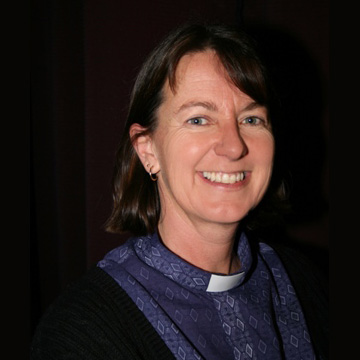From Anglican Communion New Service
The The Revd Dr Rachel Mash is the Co-ordinator for the Anglican Church of South Africa’s Environmental Network. In this essay from ACNS, she shares her hopes, rooted in her faith, for 2017 and beyond.
Was 2016 the year that fear and hatred won? Looking to the future, many people are filled with concern, particularly about the environment – a cause close to my heart. If the United States pulls out of the Paris Climate Agreement, is it all over for our planet? Will we pass the tipping point where climate change becomes unstoppable? We feel powerless – powerless to stop governments who say climate change is a myth; powerless to stop its impact on the most vulnerable.
And yet, we are people of faith. What is faith? It is the confident assurance that something we want is going to happen. It is the certainty that what we hope for is waiting for us, even though we cannot see it up ahead. (Hebrews 11:1 Living Bible). We know what we want to happen. How can we be assured it will happen?
Here are four things that give me hope for 2017.
1. The answer is spiritual.
The Earth is crying out for a spiritual response. The science of climate change is clear but we cannot convince the sceptics through more science. Politicians have made some progress through the COP conferences. But those decisions could be overturned. Climate change is not the problem – it is the result of the problem, which is consumerism and greed.
The former US advisor on climate, Gus Speth, wrote: “I used to think that the top environmental problems were biodiversity loss, ecosystem collapse and climate change. I thought that 30 years of good science could address these problems. I was wrong. The top environmental problems are selfishness, greed and apathy, and to deal with those we need a cultural and spiritual transformation. And we scientists don’t know how to do that.”
2. The sleeping giant is waking
Apathy kills social movements; opposition inspires them! What could climate change denialism lead to? In South Africa we know about denialism. The former president Thabo Mbeki and his key advisors were HIV deniers. This was a disaster in a country with the highest rate of HIV in the world. And yet, because of his strong stance – that HIV doesn’t cause AIDS – there was a huge civic movement spearheaded by the Treatment Action Campaign which raised awareness of HIV and supported people living with HIV. Eventually it led to one of the most comprehensive anti-retroviral programmes in the world.
3. Transformational change takes place when individual actions are networked
Often we feel despondent because it feels like our small actions are too small, that they are meaningless. But research shows that although individual changes may not lead to transformational change, networking these individual actions CAN make a difference. This is where social media can be a blessing: a small action on one side of the world can inspire groups of people to take action elsewhere. The effect is multiplied and so my small action gains significance, affirmation and inspires me to do more.
4. Love is stronger than fear
We need to be inspired by our love for the most vulnerable on Earth and our love for this beautiful Earth itself. This is the power than transforms; that changes us, that changes the world.
Albert Einstein describes the fear that entraps us as a kind of prison for us, restricting us to our personal desires and to affection for a few friends nearest to us. Our task must be to free ourselves from this prison by widening our circle of compassion to embrace all living creatures and the whole of nature in its beauty.
Archbishop Emeritus Desmond Tutu was preaching at St George’s Cathedral in Cape Town one day, at the height of the apartheid days when many felt there was no hope of change. He was surrounded by security police. He stood in his pulpit, smiled at them and said: “Come over and join the winning team”.
I have hope for 2017 because we are on the winning team.

